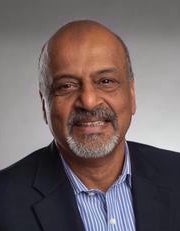Abstract:The imperatives of conservation of energy resources and their consumption have perhaps been quite acutely highlighted by numerous global events at the start of this new millennium. The “energy conundrum,” highlighted by issues of abatement of environmental degradation and sustainable energy development, which received rather sporadic attention in the last several decades, has become a subject of considerable present-day “urgency” with enormous economic and political implications. The primary problems in conversion and conservation, however, have several viable engineering solutions, particularly with applications of heat and mass transfer enhancement techniques. The presentation delineates recent advancements in enhanced and passive control of transport processes, highlighting some current research in nucleate boiling and bubble dynamics, drop-surface interactions, and application of enhanced heat transfer in dry-cooling of thermoelectric power plants and thermal energy storage.

Bio:Dr. Raj M. Manglik, Professor of Mechanical Engineering, is the Director of the Thermal-Fluids & Thermal Processing Laboratory, University of Cincinnati. He obtained all his degrees in Mechanical Engineering: B.Tech. (Indian Institute of Technology – Madras), M.S. (Iowa State University), and Ph.D. (Rensselaer Polytechnic Institute). His academic career was preceded with an eight-years stint in industry designing steam turbines, cogeneration power plants, heat exchangers, and hydraulic and pneumatic actuators. He was the Editor-in-Chief of the Journal of Enhanced Heat Transfer, a two-term Associate Editor of ASME Journal of Heat Transfer, editor of the International Journal of Heat Exchangers, and technical editor of Heat Transfer and Fluid Flow Data Books. He has over 300 archival papers and technical reports to his credit, and has given numerous keynote presentations and invited lectures at national and international forums. He has published 10 books, monographs, and book chapters, including the classical textbook: Principles of Heat Transfer (7th and 8th eds.; Cengage). His research expertise spans a broad spectrum of thermal science and engineering, with expertise in boiling heat transfer, interfacial phenomena, thermal processing of non-Newtonian media, compact heat exchange systems, and heat transfer enhancement. He has been the recipient of the very first NSF CAREER Award (1995), the ASME Melville Medal (2006) for the best original scientific contribution, ASME HTD 75th Anniversary Medal (2013), ASME Heat Transfer Memorial Award (2016), ASME Potter Gold Medal (2018), and AIChE Donald Q Kern Award (2020), among many other research and teaching awards. He is a Fellow of ASME and ASHRAE, senior member of AIChE, Sigma Xi, and Tau Beta Pi, and has organized several international symposia, conferences, and technical sessions on heat transfer.

